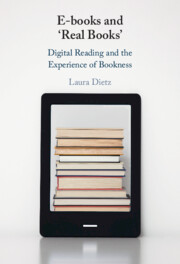Acknowledgements
Thousands of people have been willing to talk to me about reading. Their generosity made this book possible, and the experiences they’ve shared have made this the most fascinating, inspiring conversation I could possibly have hoped to join. I’m deeply grateful to them all.
Thanks are inadequate for all the scholarly support and astute suggestions that have strengthened the book. I’m particularly indebted to friends and colleagues at University College London (UCL), Anglia Ruskin University (ARU), the Society for the History of Authorship, Reading and Publishing, and elsewhere. Naming just Tiffani Angus, Francesca Benatti, Kathi Inman Berens, Nick Canty, Ryan Cordell, Alexandra Dane, Matthew Day, Beth Driscoll, Astrid Ensslin, Judy Forshaw, Caron Freeborn, Danielle Fuller, Alan Galey, Dene Grigar, Vince Haig, Esmond Harmsworth, Leah Henrickson, Tanya Horeck, Timothy Jarvis, Mareike Jenner, Edmund King, Matt Kirschenbaum, Una McCormack, Helen Marshall, Simone Murray, Eben Muse, Corinna Norrick-Rühl, Colette Paul, Julie Rak, Melanie Ramdarshan Bold, Katharine Reeve, DeNel Rehberg Sedo, Rebecca Roach, Matthew Rubery, Sydney Shep, Tyler Shores, Claire Squires, Ann Steiner, Jon Stone, Emma Sweeney, Leah Tether, Bronwen Thomas, Shafquat Towheed, Claire Warwick, Millicent Weber, Kim Wilkins, Caroline Wintersgill, and Tory Young represents vast understatement. I’m especially grateful to the people of the UCL Centre for Publishing, including Daniel Boswell, Caroline Davis, Joanna Longden, and Simon Rowberry, and, above all, to Samantha Rayner, who has been with this project from the earliest inklings of research questions. The fact that there is anything to read here is a testament to her steadfast kindness, and to what pure, clear-eyed, bulletproof curiosity about books and how we study them can inspire students to do.
At Cambridge University Press, Bethany Thomas has shaped and guided this book from enhancing the proposal through every stage of editing and production. My heartfelt thanks to her and to Adam Hooper, Emma Goff-Leggett, George Laver, Heidi Mulvey, Aiswarya Narayanan, the manuscript reviewers who were so generous with their time and expertise, and the whole of the remarkable team at CUP.
Special thanks are due to the Centre for Computing History, the Computer History Museum, and the Electronic Literature Lab for the kind help with access and photo permissions, and as always for their work in maintaining indispensable collections.
I am infinitely grateful to my family, for their support and also the years of book talk and the examples, counterarguments, fresh leads, and big ideas shared over dinner tables and video calls; Dad’s lore of the early days of desktop publishing is only one example. To my mom, Jeannie, my dad, Bryan, and to Shelby, Eanna, Jack, Catherine, Martine, Martin, Phil, Mandy, Niamh, Arun, Jill: thank you.
The greatest debt is, as usual, the one closest to home. E, C, B, you are everything. Sharing that bookstore café table was the best move I’ve ever made.

